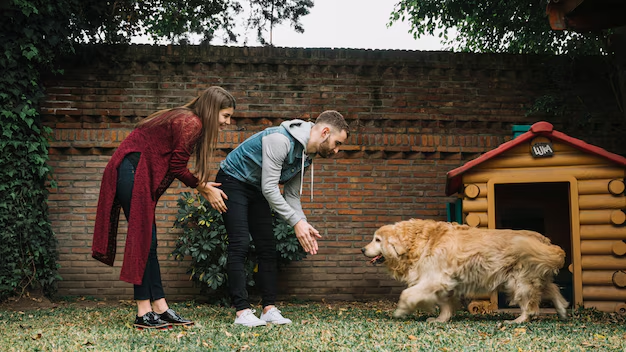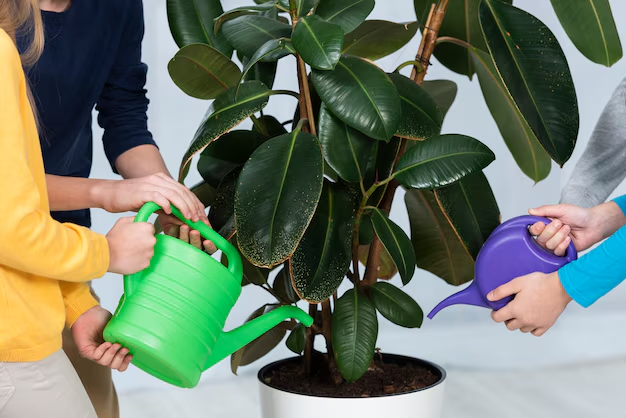Have you ever met a runt? These little furballs may be smaller than their siblings, but they have big personalities that can capture anyone’s heart. Often overlooked in shelters and breeding facilities, runts are the underdogs of the animal world. While some might see them as fragile or weak, those who look deeper discover something truly special.
Runts come with unique qualities that set them apart from the rest. Their spirited demeanor and loving nature make them exceptional companions for people of all ages. This guide will explore why adopting a runt can bring joy to your life while debunking common misconceptions surrounding these lovable pets. Whether you’re an experienced pet owner or considering adoption for the first time, you’ll find plenty of reasons to celebrate runts!
The Misconceptions Surrounding Runts
Many people believe that runts are inherently unhealthy. This misconception stems from the idea that smaller animals must have some underlying issue. However, being a runt simply means they were born smaller than their littermates.
Another common myth is that runts are less affectionate or social. In reality, many runts develop strong bonds with their owners and can be quite loving. Their unique size often makes them more reliant on human companionship.
Some assume that adopting a runt will involve extra care and attention. While it’s true they may require specific needs, this doesn’t mean all runts will need constant monitoring or special diets.
There’s the belief that runts cannot thrive in homes as well as larger pets. Many have proven to be adaptable and resilient companions who fit right into family dynamics without any issues at all.
The Benefits of Adopting a Runt as a Pet
Adopting a runt can bring unexpected joy into your life. These smaller pets often have big personalities. Their playful nature and affectionate demeanor make them delightful companions.
Runts typically require less food than their larger counterparts. This can mean savings on pet supplies over time. They are also easier to manage in small living spaces, making them ideal for apartment dwellers.
Another benefit is the bond that often forms with their owners. Many people find that runts demonstrate remarkable loyalty and love, perhaps due to the challenges they’ve faced early on.
Additionally, adopting a runt gives you the chance to provide a loving home for an animal that might otherwise be overlooked. Each day spent together fosters growth and trust, enriching both your lives in unique ways.
Tips for Caring for a Runt
Caring for a runt requires a bit of extra attention, but it’s all worth it. Start with proper nutrition. Choose high-quality food that meets their specific needs. Smaller portions throughout the day can help manage their unique metabolism.
Next, provide a comfortable environment. A cozy bed in a quiet spot will help them feel secure and relaxed. Runt pets often need more warmth than others, so consider using blankets or heated beds during colder months.
Regular vet check-ups are crucial to monitor their health closely. Stay proactive about vaccinations and preventive care to ensure they thrive.
Socialization is key as well. Gently introduce them to different environments and other pets at their own pace. This helps build confidence over time.
Lots of love and patience go a long way! Celebrate small achievements together; every little step counts towards building your bond.
Stories of Successful Runt Adoptions
There are countless heartwarming tales of runt adoptions that showcase the resilience and charm these special pets bring into our lives. Take Bella, for instance. This tiny Chihuahua was overlooked at a shelter due to her size but has since become the star of her family’s Instagram account. Her quirky antics and adventurous spirit have won over thousands.
Then there’s Max, a diminutive Golden Retriever who struggled initially with socialization. With patience and love from his new owners, he blossomed into a confident companion who now enjoys playing in dog parks alongside larger breeds.
These stories highlight not just how runts can adapt, but also how they teach their families about compassion, perseverance, and unconditional love. Each adoption journey is unique but shares a common thread: the undeniable bond formed between humans and their runt pets is truly extraordinary.
Common Health Concerns and How to Address Them
Runts can be prone to specific health issues, largely due to their smaller size and genetic factors. One common concern is dental problems. Their tiny mouths may lead to overcrowding and misalignment of teeth. Regular vet check-ups and dental cleanings help manage this.
Another issue often seen in runts is hypoglycemia, which is low blood sugar. This can occur if they don’t eat regularly or are under stress. Providing consistent feeding schedules with high-quality food ensures they stay nourished.
Weight management also plays a crucial role for these petite pets. Obesity can exacerbate existing health concerns, so keeping an eye on their diet and encouraging exercise is vital.
Monitor any signs of respiratory distress or heart conditions, as small breeds sometimes face these challenges more frequently than larger counterparts. Routine veterinary visits are essential for early detection and intervention.
Conclusion
Runts have a special charm that captivates the hearts of many. Their unique size and quirky personalities set them apart from other pets.
Choosing to adopt a runt means embracing individuality. These animals often possess an incredible resilience, showing us all what it means to overcome challenges.
Their loyalty knows no bounds, and their playful antics can brighten even the darkest days. Owning a runt is not just about having a pet; it’s about forming an unbreakable bond.
For those considering adding one to their family, remember that every runt has its own story to tell—a journey filled with love, hope, and joy waiting to unfold in your home.
Understanding their needs is essential for nurturing this special relationship. With proper care and devotion, you’ll find that these small wonders bring immense happiness into your life.
FAQs
Are you curious about runts and their care? You’re not alone. Here are some common questions that many potential pet owners have.
What exactly is a runt?
A runt is typically the smallest animal in a litter, often perceived as weak or less viable than its siblings. However, these little ones can flourish with proper attention and love.
Do runts require special care?
While they may need some extra attention, runts are just like any other pets once they settle into their new homes. They thrive on affection, regular vet visits, and a balanced diet tailored to their needs.
Can runts be just as healthy as larger animals?
Absolutely! With appropriate healthcare and nutrition, many runts grow up to lead happy lives. It’s essential to monitor them for specific health concerns but don’t let size deter you from adopting one of these affectionate companions.
Are there certain breeds known for having more runts?
Certain dog breeds tend to have smaller litters or individual puppies that might be considered runts. Breeds such as Chihuahuas or Dachshunds sometimes show this trait more frequently due to genetic factors.
How do I find a runt for adoption?
Check local shelters or rescue organizations; they often have various animals looking for loving homes. Sometimes breeders also list available pups that fall under the “runt” category—just ensure they’re reputable sources focusing on health and temperament.










